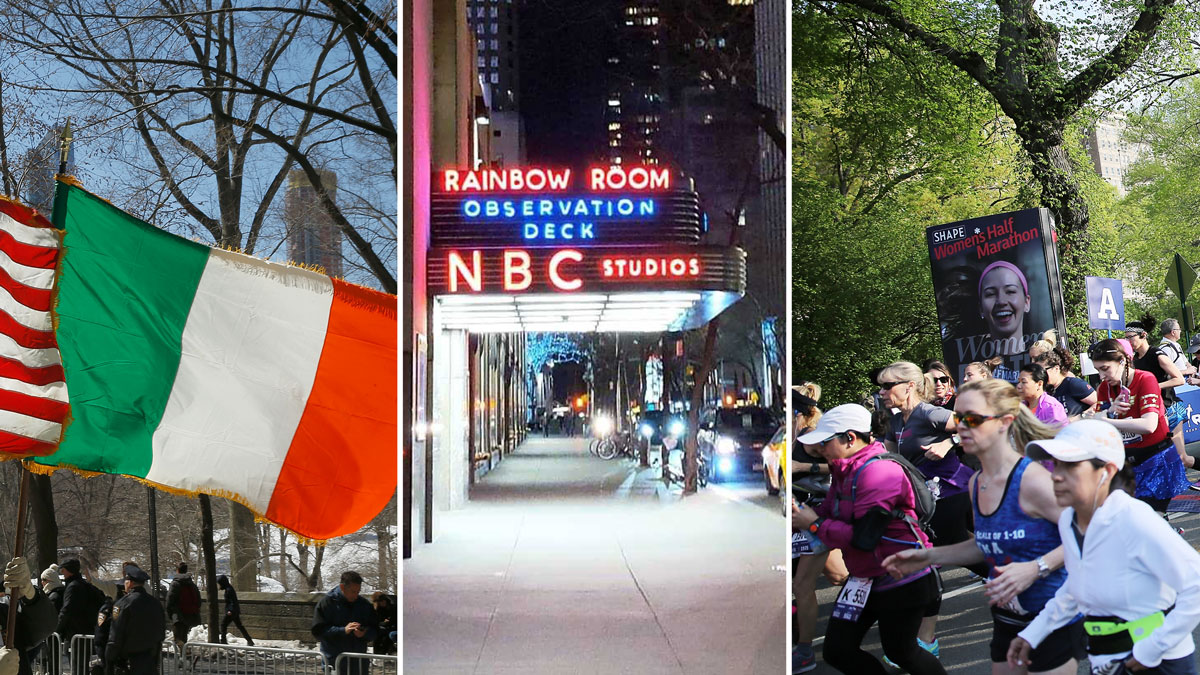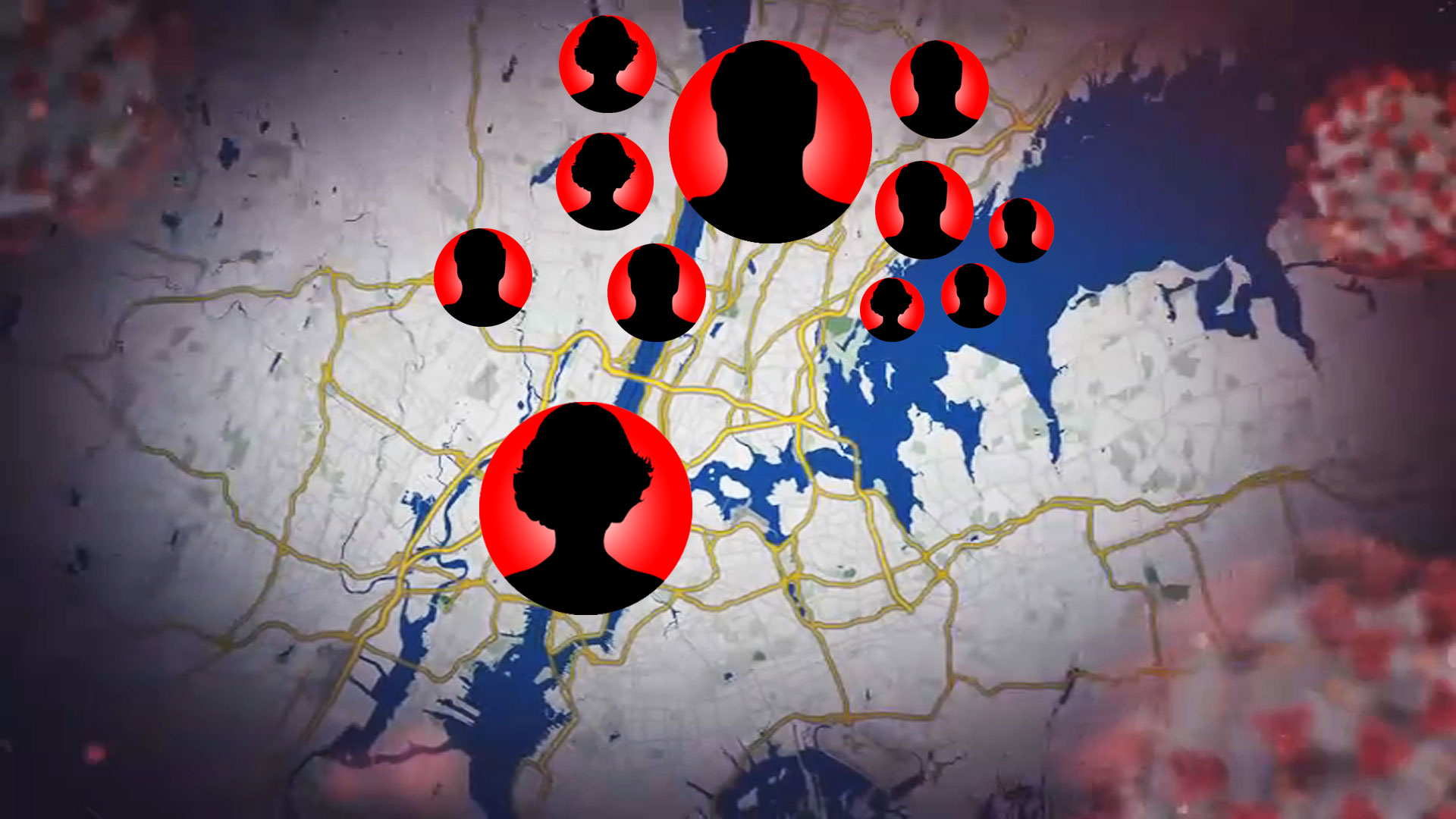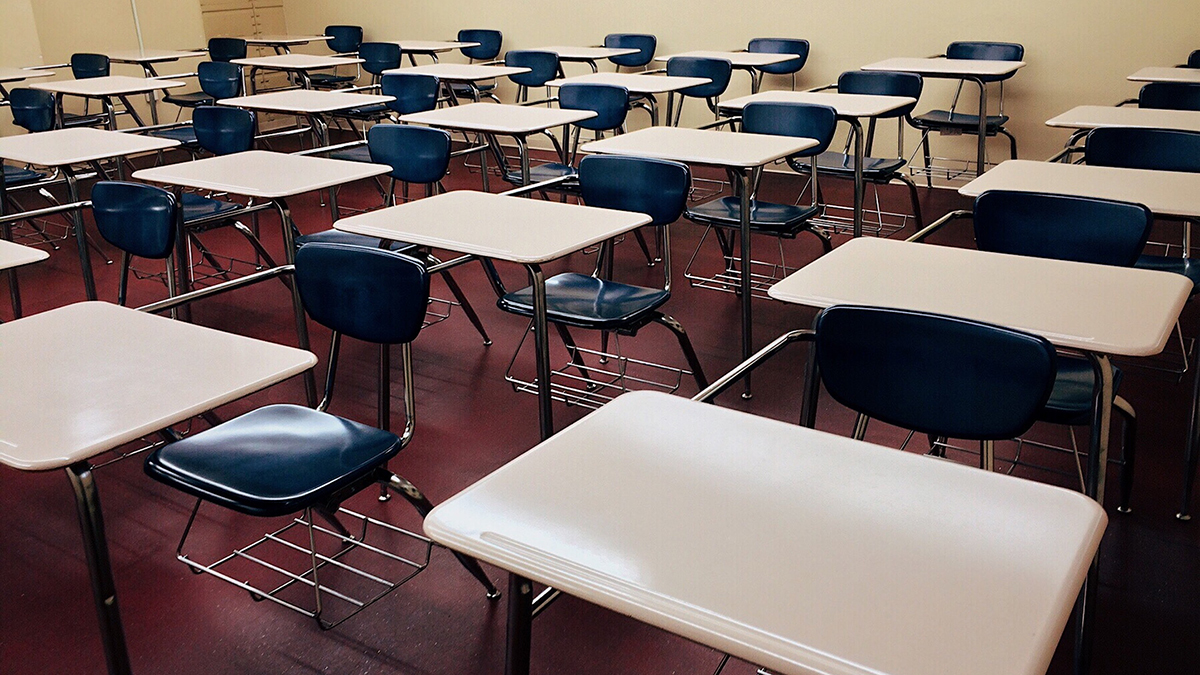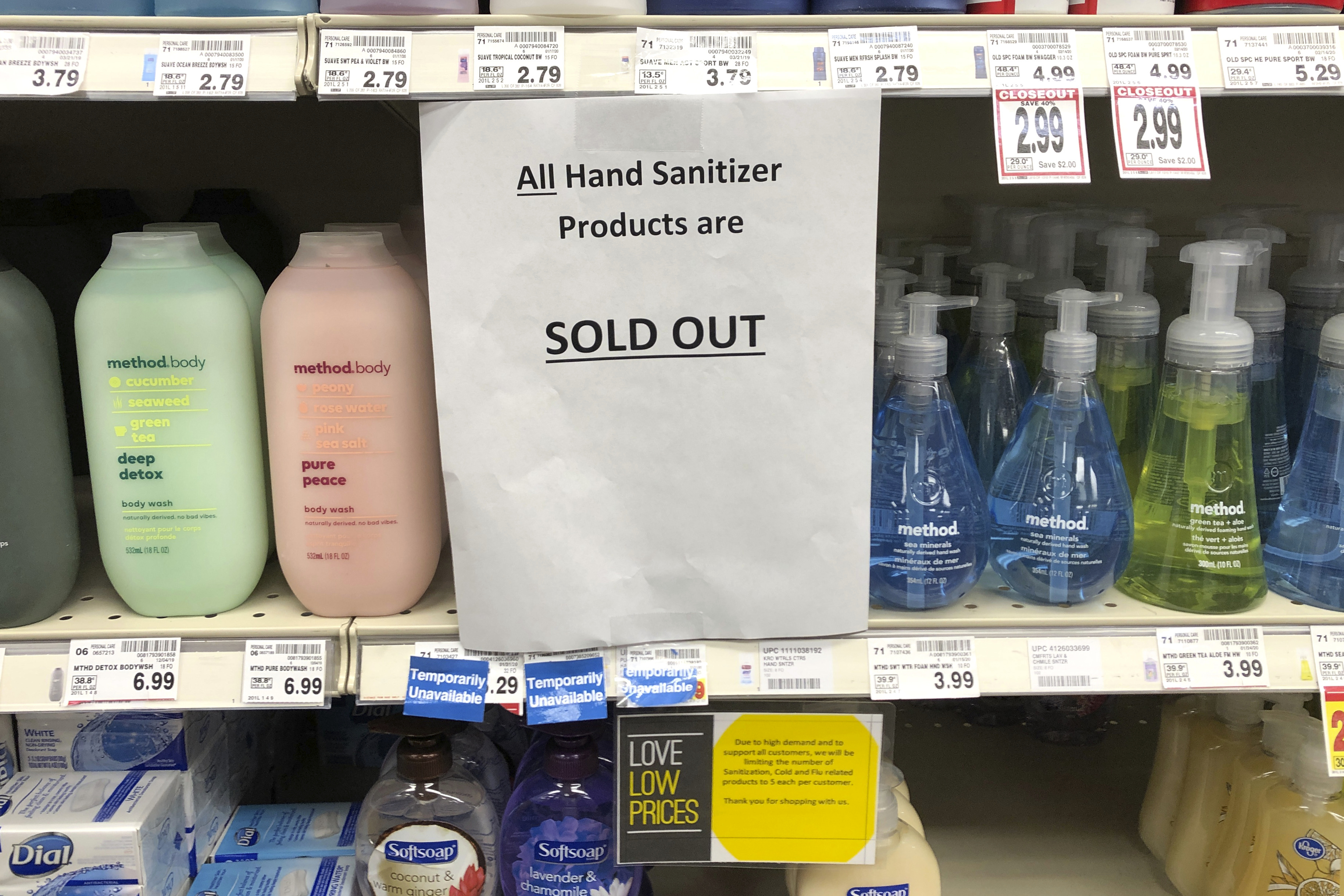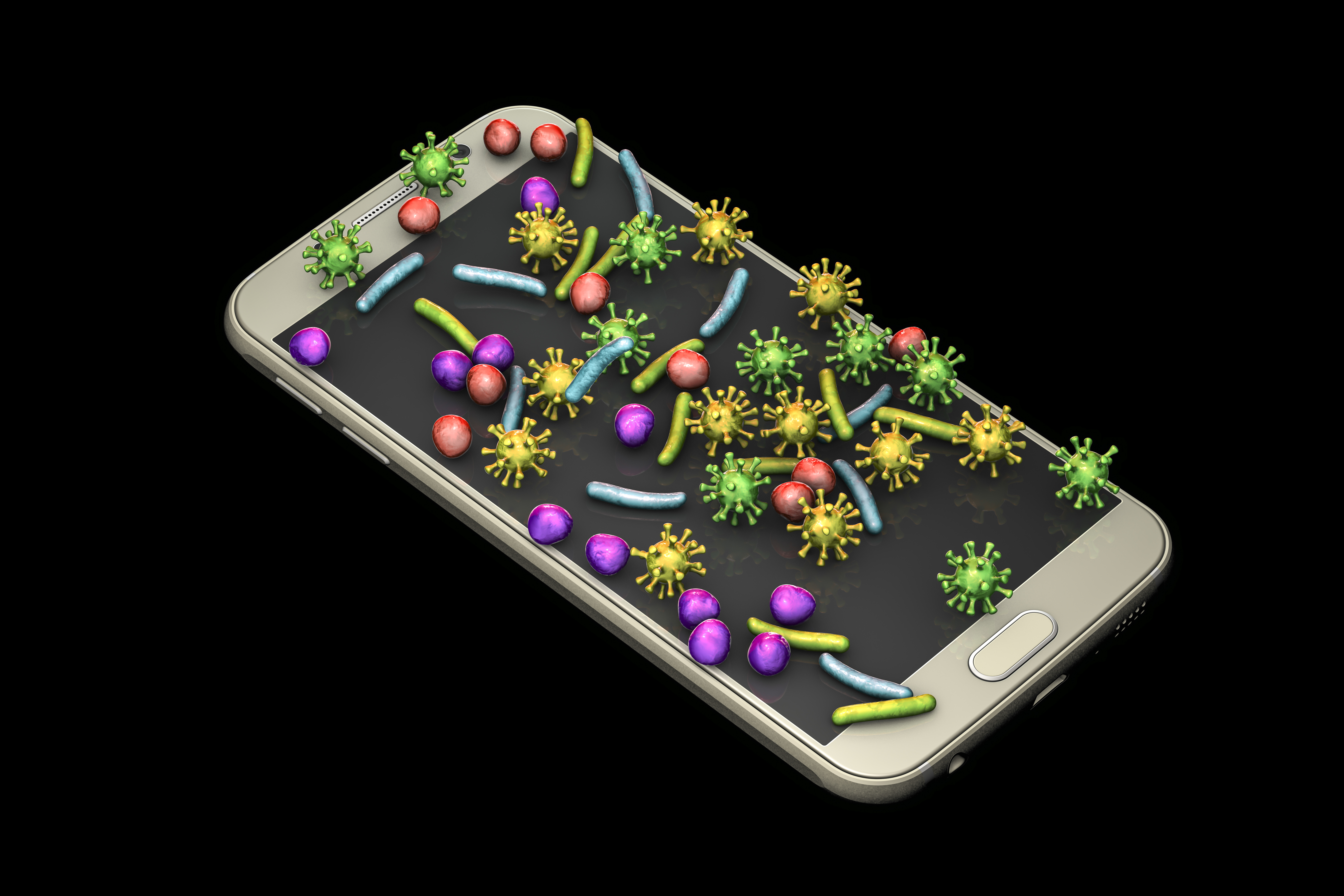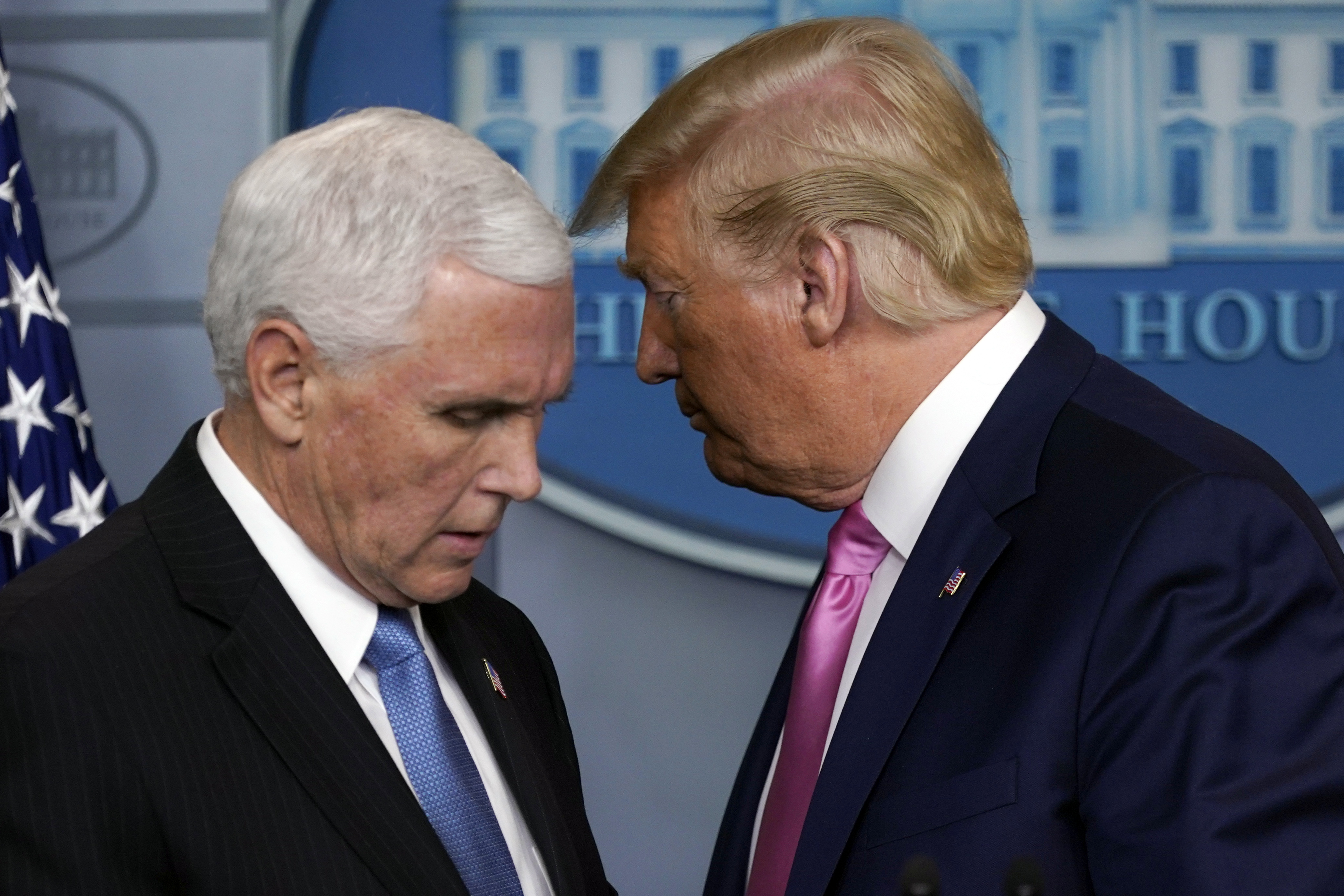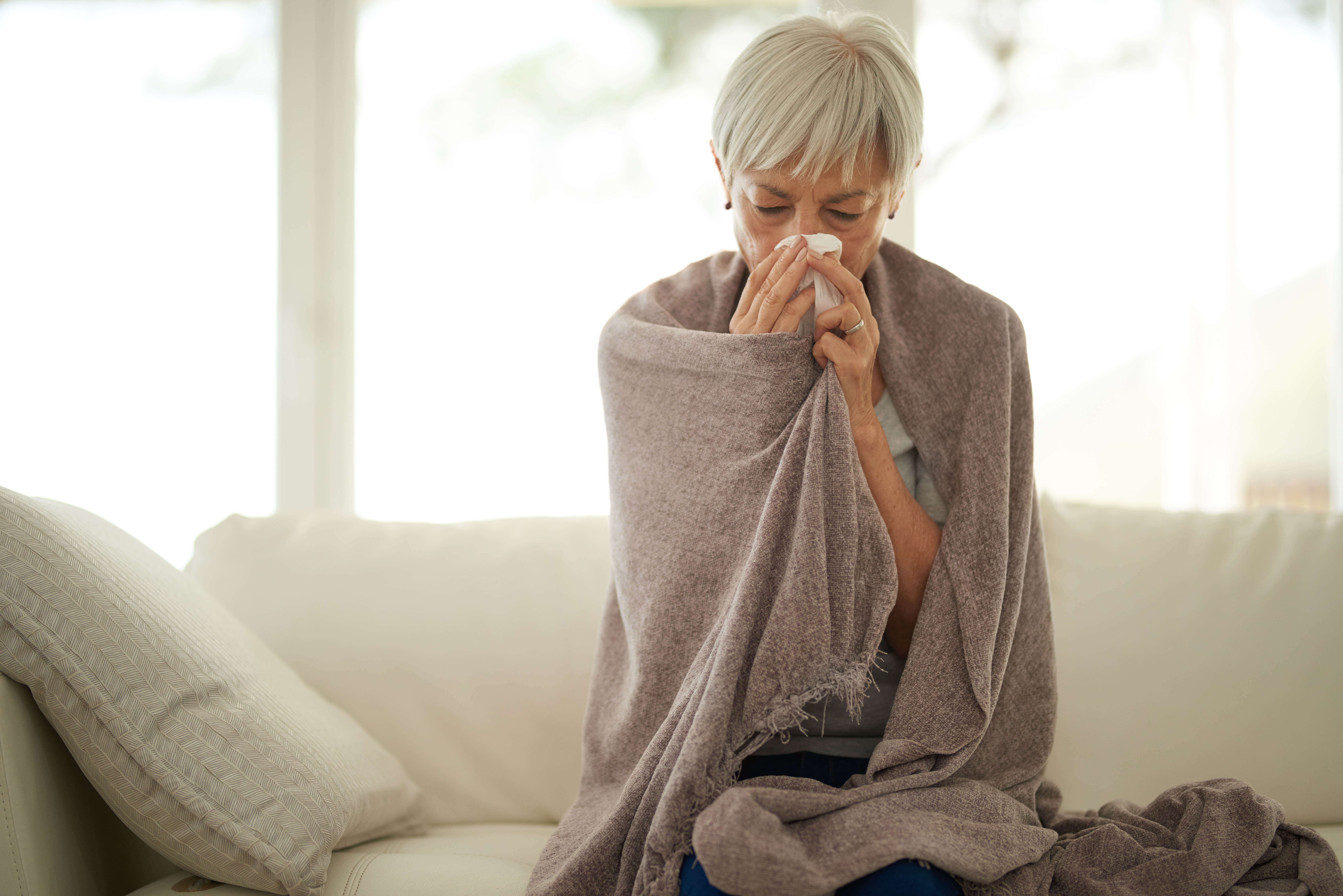What to Know
- Thousands of cases of the coronavirus have been confirmed in New York, New Jersey and Connecticut, with the biggest portion of infected patients coming from NYC and Westchester County
- Governments across the tri-state area are implementing new measures and precautions to keep the public safe
- Here are the latest directives and recommendations from authorities in the region that you may need to be aware of
President Donald Trump declared a national emergency on March 13 in an effort to combat the spiraling pandemic of the novel coronavirus as new cases continue to surge around the country -- including in the tri-state area.
Action is not only being taken at the federal level. Due to increased testing capacity, and residents looking for guidance on how to protect themselves and their families, local government officials are taking great measures to control the spread of the disease -- and the uncertainty that comes with it.
Some major companies are also taking matters into their own hands to protect customers or their employees. For example, JP Morgan Chase, the country's biggest bank in terms of assets, announced it would close nearly 1,000 of its branches — about 20 percent of all locations.
Here are the latest directives and recommendations from authorities in the region that you may need to be aware of:
TRI-STATE
BUSINESS CLOSURES
Non-essential businesses have been ordered to close or end all in-person functions in New York, New Jersey and Connecticut.
In New Jersey, Governor Phil Murphy was the last in the tri-state to announce statewide restrictions. He also required the closure of non-essential businesses by 9 p.m. the same day.
In New York, Governor Andrew Cuomo's rules were ordered to start Sunday, March 22, at 8 p.m. Similarly, the order requires non-essential business workers to stay home. Essential workforce includes healthcare workers, transit employees, childcare providers, food delivery workers. Non-compliance by businesses may result in fines or summonses.
And in Connecticut, Governor Ned Lamont ordered the closure of all non-essential businesses through April 22, which he scheduled to start Monday, March 23, at 8 p.m.
The businesses designated essential in tri-state can be found here.
SCHOOLS
Public, private and parochial schools for all ages are closed in New York, New Jersey and Connecticut. More than 38 other U.S. states have taken similarly drastic measures.
Secretary of Education Betsy DeVos announced on Friday that students impacted by school closures can bypass standardized testing for the school year.
How each state is handling the virus when it comes to school closures can be found here.
PRIMARY ELECTIONS
Both New York and Connecticut have postponed their primary elections.
Connecticut's Democratic and Republican primaries had been scheduled to take place on April 28, but Gov. Lamont says the primary will be held on June 2. On April 7, the governor said he's looking into whether to send out absentee ballot applications to every voter.
New York Gov. Andrew Cuomo has delayed the state's primary even further to June 23. He also later announced that every New Yorker will be able to get an absentee ballot without meeting the legal requirements.
New Jersey's primary is rescheduled for July 7, Gov. Phil Murphy announced.
New York
NEW YORK CITY SCHOOLS, RESTAURANTS, BARS, THEATERS, GYMS, CASINOS, PERSONAL CARE SERVICES
The mayor announced he would sign an executive order closing all nightclubs, movie theaters, small theater houses and concert venues.
Casinos and gyms will be closed at 8 p.m. Monday, March 16 until further notice.
Restaurants and bars will be limited to serving take-out and delivery orders, while bars must close unless they serve take-out food. The order went into effect at 8 p.m. Monday, March 16 until further notice.
Also closed until further notice: hair and nail salons, barbershops, tattoo parlors and other personal care businesses that can't comply with social distancing guidelines. That statewide order goes into effect at 8 p.m. on March 21.
BOARDWALKS
Long Beach City Council President John Bendo on Thursday, March 26, ordered the closure of Long Beach boardwalk until further notice. The beach will remain open but access will be restricted with the boardwalk entrances being closed off.
GATHERINGS
Cuomo announced March 20 that, effective immediately, non-essential gatherings of any size are banned, public transit should only be taken when absolutely necessary; strict social distancing -- maintaining at least a 6-foot distance from others in public -- must be obeyed. At this point, there are no legal consequences for individuals but crowds violating the new orders will be broken up.
FACEMASKS
NYC Mayor Bill de Blasio advised all New Yorkers to wear facemasks whenever going outside or around others, but instructed residents not to buy professional surgical masks that medical workers and first responders are in need of. Instead, the mayor said items like scarves or bandannas work just fine, or masks could be made from other materials so long as they cover the nose and mouth. De Blasio also said it is not something he is considering having enforced by police.
NYC PARKS
Starting the week of March 22, all events and team sports in NYC Parks will be canceled, with Mayor de Blasio saying the ban will last "for weeks, probably months." People will still be allowed in parks, but any events involving large groups will not be allowed. Playgrounds across the city will be closed after an order by Gov. Cuomo, as will dog runs.
The NYPD, along with other city agencies and departments, will be enforcing some of the social distancing guidelines at city parks. Police will also be broadcasting a message reminding them to stay six feet apart if they have to be outside, and to return home quickly after exercising or being outside.
PUBLIC TRANSIT
- LIRR: Normal service
All Long Island Rail Road ticketing offices have been closed as a precaution, the transit agency announced March 22. Customers looking to buy tickets must use ticket machines at the stations or MTA eTix - METRO-NORTH: No cash on train or ticket windows
West Of Hudson service is operating on a weekend scheduled until further notice - NJ TRANSIT: Rail service will operate on a President's Day holiday schedule with some enhancements. Atlantic City Rail Line service will continue to operate on regular weekday schedule.
Buses will implement rear-door only boarding policy where available
Newark Light Rail and River Line will switch to weekend/holiday service starting March 25 - PATH: On regular schedule
- MTA: Subways, buses and Staten Island Railroad on normal weekend service. Some express lines and branch services will be suspended starting March 24. Starting March 23, bus riders are only allowed to board at the rear door to keep drivers safe. Only riders with mobility impairments and express bus riders will board through the front door. The Staten Island Railway service will continue with schedule changes.
- ACCESS-A-RIDE: No longer scheduling shared rides but you can still travel with a personal care attendant or guest
- NYC AND STATEN ISLAND FERRY: On reduced schedule until further notice
- NY WATERWAYS: On modified schedule until further notice
- SEASTREAK: On modified schedule departing from Highlands only
ALTERNATE SIDE PARKING IN NYC
Alternate side parking in New York City has been suspended once again through April 14, with de Blasio possibly extending it further beyond that.
STREET CLOSURES
The following streets will be closed to vehicular traffic through Sunday, April 5, the mayor's office said:
- Manhattan: Park Ave, between 28th and 34th
- Brooklyn: Bushwick Ave, Johnson to Flushing
- Queens: 34th Ave, 73rd St to 80th St
- Bronx: Grand Concourse, between E. Burnside and 184th
ARRESTS IN NEW YORK CITY
If someone is arrested in the city and they display flu-like signs, they will not be taken to a precinct but will retain medical care to make sure they do not have coronavirus.
CROWDING AT GROCERY STORES
City Hall confirmed that the mayor will ask NYPD officers to enforce social distancing guidelines while at grocery stores. The request comes after numerous reports around the city of extensive lines at Trader Joes, Whole Foods, Costco and other markets across the city where crowded and unsafe conditions were spotted.
HOSPITALS
The DOH will suspend certain regulations to allow for more hospital capacity.
Additionally, Cuomo urged the federal government to deploy the Army Corps of Engineers to assist local governments by building temporary medical facilities to deal with the expected influx of patients. However, Cuomo said he will not solely wait on response from the federal government and announced he will organize the National Guard, building unions and private developers to assist in constructing additional medical facilities to hold thousands of additional beds for patients.
Cuomo also said that the state may order the cancelation of elective surgeries to free up space in hospitals.
PROTECTING OLDER OR VULNERABLE RESIDENTS
Gov. Cuomo signed Matida's Law, named after his mother, to set into place protections for New York residents over the age of 70 and those with compromised immune systems or underlying illnesses. The measure requires these more vulnerable residents to stay home and limit home visitation to immediate family members or close friends in need of emergency assistance. Anyone who visits should get screened for temperature to ensure the person doesn't have flu-like symptoms, and both people should wear a protective mask.
PERSONAL PROTECTIVE EQUIPMENT
Gov. Cuomo asked that any individual or business that has personal protective equipment, or PPEs, that are not essential or being used to sell such items to the state amid the shortage of supplies. Cuomo also encourages any company with proper equipment or personnel to manufacture PPE products if possible, for which the state is willing to provide funding.
PRISON/JAIL INMATES RELEASED
New York City is planning on releasing hundreds of inmates from jails and facilities in the city, so as to prevent them from contracting the virus within close quarters. Those who have either already been released or have been targeted for release are over 50 and are low-risk for re-offending.
BROADWAY, LARGE GATHERINGS
On March 12, Gov. Andrew Cuomo called the coronavirus a "public health emergency" and said that in order to reduce the spread there will be no gathering with 500 people or more, those below a 500 seated capacity should reduce occupancy by 50%.
These new measures went into effect March 13 at 5 p.m., except for Broadway theaters which went into effect the previous day. Broadway shows will commence the week of April 13.
Since this announcement was made, a subsequent tri-state mandate banned gatherings of more than 50 people.
DMV APPOINTMENTS
The New York State Department of Motor Vehicles will require people to make online appointments in 27 state-run offices to limit person-to-person contact and reduce density.
DEBT COLLECTION SUSPENSION
Gov. Cuomo and Attorney General Letitia James announced March 17 that the state will temporarily halt the collection of medical and student debt owed to the State of New York and referred to the Office of the Attorney General for collection, for at least a 30-day period. It's in effect immediately.
UTILITY RATE INCREASES
The Public Service Commission approved orders to postpone rate increases for nearly two million customers of New York American Water and National Grid upstate that were scheduled to go into effect on April 1. Those rate increases will now go into effect in September and July, respectively, and were the only major utilities in New York that were scheduled to increase rates in April. The state's Department of Public Service asked all other utilities to consider postponing rate increases as well.
MORTGAGE RELIEF
In order to help out families struggling financially during the coronavirus outbreak, Gov. Cuomo announced a 90-day mortgage relief for homeowners across the state. The measure includes having payments waived based on economic hardships faced, a grace period for modifying loans, suspending online payment and late fees, and postponing foreclosures.
911 CALLS
After experiencing a heavy increase in the number of calls to 911, the FDNY released a PSA urging city residents to only call in case of a true emergency and to follow the NYC Department of Health's guidelines when it comes to COVID-19: Unless you are experiencing severe symptoms (difficulty breathing, high fever, etc.), keep health care access available to others who might be in more dire need.
NEW ROCHELLE CONTAINMENT ZONE
Cuomo announced a slate of sweeping new directives for Westchester County's New Rochelle.
The governor announced he is planning a one-mile radius containment area surrounding New Rochelle, which at one point had the biggest cluster of confirmed cases, from March 12 to March 25. Among the measures that will take place within the containment area are not allowing major congregate facilities to hold large gatherings and closing schools for that period of time while they undergo deep cleaning.
Cuomo also set up satellite facility in the area and deployed the New York National Guards to a Health Department command post in New Rochelle to assist with the outbreak. Additional mobile test facilities are planned for other areas in New York.
MANDATORY AND PRECAUTIONARY QUARANTINE (ISOLATION)
Dozens of people statewide are under a mandatory quarantine order. Those people have either: 1) Tested positive; 2) Had direct contact (within 6 feet) with a person who has tested positive; 3) Returned from a country with CDC travel health levels 2 or 3, the countries in the hotbed of the outbreak; or 4) Local health provider and local health department believe they need quarantine. In that case, the state Department of Health would coordinate to make the final determination.
TRANSIT CLEANING
The rise in cases has sparked concern about public transportation and the MTA has engaged in a robust prevention and cleaning plan as part of the city's overall preparedness and response efforts. The city has also issued new guidance advising people to avoid taking mass transit if possible. However, if one must take mass transit, try to take a train or bus that is not packed in an effort to leave space between people.
The MTA announced it would scrub clean all 5,700 buses in its fleet every 72 hours, essentially twice a week. Transit officials say this far exceeds past practices of routine cleaning and maintenance.
Taxi regulators are also telling drivers and owners to clean their cars with disinfectant products at least once a day, paying special attention to surfaces that are touched often, such as door handles, armrests, and seat belts. Uber said it has similar protocols in place.
NEW YORK STATE OF EMERGENCY
Cuomo declared a state of emergency to clear the way for more testing, purchases of more supplies and hiring of workers to help monitor self-quarantined patients. He said there has been an increase in legal penalties for price gouging around products like hand sanitizer.
NEW YORK CITY STATE OF EMERGENCY
Mayor de Blasio also declared a state of emergency for the city, which gives him authority to close or restrict a number of different fields, including: enacting a city-wide curfew, closing down public transportation, rationing certain supplies, regulating or closing public spaces, and limiting the maximum occupancy for buildings.
COUNTY STATES OF EMERGENCY
Various counties in New York have declared states of emergency amid the COVID-19 outbreak. This allows the counties to reduce staffing, close certain indoor and recreational areas — like museums, pools, ice rinks and other facilities — and cancel events or ban large gatherings.
STATE OF EMERGENCY FOR CITY OF YONKERS
The city of Yonkers declared a state of emergency on March 13. Yonkers has various confirmed cases of COVID-19.
"This declaration allows the city to expedite emergency purchases of supplies when needed as we continue to navigate the unchartered waters of this pandemic," Yonkers Mayor Mike Spano said in a statement.
MANDATORY TESTING FOR SOME CITY WORKERS
In New York City, Mayor Bill de Blasio announced a directive that enables the health commissioner, on a case-by-case basis, to require city workers, including first responders, health care workers and educators, to undergo COVID-19 testing. Decisions will be made on an individual basis, but the mayor said any city worker who returned from one of the most outbreak-affected countries who experienced symptoms would be required to have a coronavirus test. Failure to comply with that order will result in mandatory quarantine and specific employment consequences.
There will also be no non-essential international travel for city workers, Mayor Bill de Blasio also said.
HEALTH INSURANCE COST RELATED TO COVID-19
So far, New York state has the most confirmed cases of COVID-19 compared with other states in the area and Gov. Andrew Cuomo has directed health insurance providers to waive cost-sharing associated with coronavirus testing.
"New Yorkers receiving Medicaid coverage will not have to pay a co-pay for any testing related to #coronavirus. Currently, all COVID-19 tests being conducted at the State's Wadsworth Lab are fully covered," Cuomo said.
GUIDANCE FOR VULNERABLE NEW YORKERS
New York City is advising those with chronic lung disease, heart disease, cancer, diabetes, or a weakened immune system to avoid unnecessary events. If you have family or friends who have one of these conditions, do not visit them if you feel sick.
Cuomo also said nursing homes and senior living facilities in the vicinity of New Rochelle had been instructed to "suspend outside visitors."
PRICE GOUGING
New York's Office of the Attorney General is monitoring any price gouging of "necessary goods and entities selling bogus medical treatments that purport to effectively treat or cure COVID-19."
Attorney General Letitia James encouraged consumers to report any incidents of price gouging to her office after she issued a cease and desist order to televangelist Jim Bakker for helping promote a product as a treatment to coronavirus.
De Blasio added that any stores that charge exorbitant prices for designated items — like the N95 mask, hand sanitizer and disinfectant wipes — will be fined upwards of $500 per incident in an effort to stop price gouging. The city's Department of Consumer and Worker Protection marked those items as temporarily in short supply.
By March 17, Mayor de Blasio said there had been hundreds of businesses issued fines for price-gouging.
SCAMMING
New York Attorney General Letitia James sent out a warning to all state residents regarding a scam that has become more frequent as the coronavirus spread. Scammers are allegedly knocking on doors and offering COVID-19 testing for a fee, and James warned that the agency is not going door-to-door. Anyone who experiences a scam like this is asked to contact James' office.
NYC PUBLIC LIBRARIES
All New York City public libraries are suspending public programming and events until Tuesday, March 31. Queens Public Library will also closed all locations until further notice.
WORKPLACE PROTECTIONS
Cuomo said he would amend his Paid Sick Leave budget proposal to specifically protect people who stay home from work because they are being isolated or quarantined from job termination.
De Blasio also urged private companies that can do so to allow employees to work remotely in order to free up space in public transportation and reduce number of people in close quarters. He also recommended business owners to possibly implement staggering hours.
De Blasio also reminded the public that New York City has a law that provides five days of paid sick leave.
FEDERAL COURTS
The Southern District of New York announced Monday that, effective immediately, the following people are banned from entering its courthouses:
- People who have been to China, South Korea, Japan, Italy, Iran within the last 14 days
- People who live with or have had close contact with someone who has been in one of the above countries in the last 14 days
- People who have been asked to self-quarantine by any doctor, hospital or health agency
- People who have been diagnosed with or have had any contact with anyone who has been diagnosed with COVID-19
Anyone who fits any of those bullet points and tries to enter a courthouse in the Southern District will be denied entry by security. More details here.
Some northern suburbs were greeted Monday with notices bearing a judge's order: Don't come in if you have had contact with anyone who has tested positive for the virus, or certain other criteria for possible exposure.
State courts aren't considering similar measures for now, Cuomo said.
SMALL BUSINESS PROTECTIONS
New York City businesses with fewer than 100 employees that can document a decrease in sales of up to 25 percent due to the spread of COVID-19 will be eligible for no-interest loans up to $75,000, de Blasio said Sunday.
Small businesses with fewer than five employees, meanwhile, will be able to obtain grants worth up to $6,000 to help retain employees, he said.
"Any business under five employees that's suffering a crisis because of what's going on can call 311 and they will get help getting that assistance," de Blasio noted.
FDNY Commissioner Daniel Nigro announced that firefighters will not join paramedics, EMTs and police officers on non-life threatening 911 calls as a precaution to protect personnel from the coronavirus.
Nigro likened it to a sports team not exhausting itself in the first half of a game. "The fire department can't afford to lose a game," he said.
An FDNY spokesperson says firefighters can still be called in by EMS to help with flu or possible coronavirus cases whenever requested.
"It allows the department to prioritize call types and send our resources where they are needed most, as is done during extreme weather, natural disasters or periods of very high call volume," the spokesperson said.
SUFFOLK COUNTY CORRECTIONAL FACILITY
Suffolk County Sheriff Errol D. Toulon Jr. has suspended all contact visits until further notice to prevent the spread of coronavirus.
Non-contact visits may still be scheduled in advance by calling 631-852-1893 or 631-852-1894. There are six non-contact booths in Yaphank and 9 in Riverhead. Visitors may schedule one visit per day. Walk in visits will not be allowed.
Additionally, newly arriving inmates are being screened for signs and symptoms of COVID-19, and jail and health officials will arrange for quarantine as necessary. If any inmates or staff contract coronavirus, Health Department officials will implement special release protocols to protect the public.
HOMELESS INDIVIDUALS
New York City outreach employees are working on a systematic effort to go through all of their contacts with homeless individuals to reach them all and check on their health and see if there are any signs of symptoms and get them medical help.
CORONAVIRUS HOTLINE
For general questions about the coronavirus, the empire state has set up a hotline at 888-364-3065. In NYC, the city has set up a text notification system called COVID to send out the latest developments on the virus. To sign up for that service, text COVID to 692-692.
New Jersey
NEW JERSEY STATE OF EMERGENCY
Murphy declared a state of emergency on Monday allowing state agencies and departments to utilize state resources to assist affected communities responding to and recovering from COVID-19 cases. The declaration also triggers other executive powers and safeguards, such as prohibiting excessive price increases and the ability to waive certain procurement procedures to expedite the delivery of goods and services deemed necessary for preparedness and response efforts.
MALLS AND INDOOR AMUSEMENT PARKS
Malls and indoor amusement parks will close at 8 p.m. March 17 until further notice.
GATHERINGS
Gatherings of more than 50 people throughout the tri-state banned effectively immediately.
CASINOS AND GYMS
Casinos and gyms throughout the tri-state will close at 8 p.m. Monday, March 16, until further notice.
RESTAURANTS AND BARS
Restaurants and bars will be limited to serving take-out and delivery orders, while bars must close unless they serve take-out food. The order will go into effect at 8 p.m. Monday, March 16 until further notice.
SALONS, BARBERSHOPS, TATTOO PARLORS
To help further curb the spread in his state, Murphy said that as of 8 p.m. March 19, all personal care shops that can't comply with social distancing guidelines would be closed indefinitely. That includes barbershops, nail and hair salons and tattoo parlors — any business that requires close contact between workers and customers.
BOARDWALKS & BEACHES
The boardwalk and all beaches in Ocean City were ordered to close Wednesday, March 26, after an administrative order issued by the state allowed local municipalities the discretion to impose restrictions.
On March 24, Spring Lake police announced that the Spring Lake boardwalk will shut down to curb the virus.
PARKS
All state and county parks, as well as all state forests, were closed effective April 7 until further notice. Law enforcement, including state police, state park police and conservation police, will enforce the order. Department of Environmental Protection Commissioner Catherine McCabe said that while all residents need fresh air and exercise, "as the weather warms, our parks are becoming crowded and it is difficult in many places to observe the social distancing that is so critical to fighting the COVID-19 outbreak."
GROCERY STORES
All customers and employees at grocery stores in New Jersey are required to wear some sort of face covering while shopping, according to an executive order signed by Gov. Murphy. It does not have to be a medical or professional mask, but some sort of covering (with a bandanna or scarf, for example) is needed or customers may be asked to leave the store. Stores are required to provide masks for employees.
Also, all essential retail stores are allowed up to 50 percent of their allowed capacity inside the premises.
HEALTH CARE
Hospitals have been instructed to eliminate consumer cost-sharing associated with testing and testing-related services for COVID-19 for individuals who are eligible for charity care. Insurance carries have been advised to waive all cost-sharing for emergency room (in or out of network), urgent care (in network) and office visits (in network) associated with medically necessary screening and testing for COVID-19.
The state's Medicaid program has been directed to cover testing, visits for testing and testing-related services without cost to members. It will also cover 90-day supplies of prescriptions for maintenance medications. For more information on the Department of Health's efforts, click here.
In Gov. Murphy's April 1 executive order, the state will temporarily reactivate the licenses of recently retired health care professionals and grant temporary licenses to foreign doctors.
TAXES
The New Jersey income tax filing deadline for both individuals and businesses will be extended to July 15, the governor announced.
FINANCIAL AID
The deadline for eligible college students to apply for a renewal of state tuition aid for the 2020-2021 academic year has been extended from April 15 to June 1.
DEPARTMENT OF MOTOR VEHICLES
All New Jersey Motor Vehicle Commission agency and road testing facilities are closed with an anticipated re-opening date of March 30. All driver licenses, non-driver IDS, vehicle registrations, and inspection stickers that expire before May 31 will be extended by two months. Online services will still be available to residents.
UTILITIES
The NJ Board of Public Utilities say all New Jersey phone providers, cable providers, and public gas and electric utility companies have suspended service shutoffs until further notice.
TRAVEL
Non-essential travel "strongly discouraged" between 8 p.m. and 5 a.m. daily.
CHILD CARE
All child care centers in the state were ordered to close by Gov. Murphy, unless they were solely serving children of essential workers. The centers that were serving essential workers had to certify that they were doing so by March 27, otherwise they would have to close by April 1. Essential employees include any person working in health care, law enforcement, fire and emergency services, correctional services, some social services, and critical workers at retail businesses previously deemed essential.
HOBOKEN RESTRICTIONS
The city of Hoboken announced a slew of measures to help contain the spread, essentially telling all residents to self-isolate for the time being — a similar measure as San Francisco has put into place. People are asked to stay in their homes, only traveling outside for the grocery store or pharmacy. All other nonessential businesses have been closed.
Other actions include suspending street cleaning, closing fields, recreation facilities and playgrounds; closing daycares and pop-up camps for children and limiting City Hall services non in-person contact only. Senior activities had already been canceled.
Additionally, the Hoboken Office of Emergency Management has activated the volunteer Community Emergency Response Team (CERT), which will be handing out flyers with information about COVID-19 at transit stations.
NEWARK RESTRICTIONS
Newark Mayor Ras Baraka announced a shelter-in-place order for the entire city, which would have all residents stay in their home unless they are getting groceries, to the pharmacy, doctor, walking the dog or briefly getting fresh air. All non-essential business (i.e. nail salons, barber shops, hair salons or retail stores that don't sell food, household goods and medical supplies) were ordered to close and not reopen until April 1 at the earliest.
Other measures include city hall being minimally staffed, and open to residents by appointment only; supermarkets, pharmacies and gas stations are allowed to be open after 8 p.m., but patronizing them is on an emergency-basis only; cable provider Altice providing wifi to students so they may participate in remote learning; and restaurants and bars only allowed to do take-out and delivery during the day, closing by 8 p.m.
ASBURY PARK
Restrictions placed on businesses, the city announced all city facilities will close to the public, including City Hall, Municipal Court, the public library, the Senior Center and the Department of Public Works.
TRAVEL RESTRICTIONS AND SUSPENSIONS FOR STATE EMPLOYEES
New Jersey also enacted immediate restrictions on state-related travel for state employees and has suspended all international travel for state employees until further notice. Any out-of-state travel has to be approved by the governor's office, according to officials.
BERGEN COUNTY
Bergen County Executive Jim Tedesco issued an order to close all county parks by Saturday, March 28 at 8 a.m. All Bergen County-operated senior activity centers are also closed until further notice.
JERSEY CITY
A precautionary 10 p.m. curfew was implemented effective immediately for all Jersey City establishments carrying a liquor license in an effort to reduce large uncontrolled crowd turnout as a preventative measure to reduce exposing the public to the pandemic COVID-19.
As of noon on March 16, Jersey City will expand its restrictions and order the closure of all bars and nightclubs that do not serve food, movie theaters and performance centers, gyms, barbershops, daycare centers, nail salons and non-urgent medical offices including dental offices, physical therapy clinics, and chiropractor offices. All restaurants will only be allowed to serve takeouts, deliveries and drive-thrus.
The restrictions won't be applied to grocery stores and cafeterias within nursing homes and similar facilities.
Houses of worships and venues (restaurants, bars, banquet halls etc.) that hold more than 25 people are being asked to maintain attendance in case of future need to track exposure.
Schools are banning visitors unless it's an emergency or appointment. Middle school basketball games no longer allowing fans to attend. Additionally, students who enroll in Jersey City schools in the near future and who come from a "hot zone" will be made to quarantine for 14 days.
To further the city’s efforts to stop the spread of the coronavirus, a 24-hour hotline has been set up. Officials advisee that if you are a Jersey City resident and believe you have been exposed to COVID-19 please self-quarantine and call: 201-547-5208.
NEW JERSEY COURTS
Chief Justice Stuart Rabner announced that all New Jersey courts would suspend new jury trials until further notice to help minimize community exposure to the coronavirus. Jury trials already in progress will continue, as will grand juries. Court officials will also stagger schedules for other hearings such as landlord/tenant, small claims and other non-jury court proceedings.
PRICE GOUGING
New Jersey Attorney General Gurbir S. Grewal and the state's Division of Consumer Affairs is also issuing a warning to retailers: don't try to profit from coronavirus fears.
New Jersey officials sent warning letters to a number of retailers suspected of significantly inflating prices of items associated with the current concerns related to COVID-19. The letters warned retailers that New Jersey’s Consumer Fraud Act (CFA) protects consumers from gross and unreasonable inflation of the price of any product in response to concerns about a public health event, such as the current spread of COVID-19.
The letters, sent internet retailers and brick-and-mortar businesses across the state, also warn that the state’s CFA prohibits false and misleading statements related to the efficacy of products to cure or prevent diseases.
Consumers who believe they were targeted by a scheme related to COVID-19 in New Jersey, or who believe that businesses have unfairly increased their prices in response to COVID-19, are encouraged to file a complaint online at www.njconsumeraffairs.gov or call 973-504-6240.
DEPARTMENT OF CORRECTIONS
The Department of Corrections suspended visits for 30 days out of an abundance of caution. Legal visits will continue and additional access to free phone calls and postage will be granted to inmates, officials said.
CORONAVIRUS HOTLINE
For general questions about the coronavirus, the Garden State has established a 24-hour hotline at 800-222-1222.
Connecticut
RESTAURANTS, BARS, RETAIL ESTABLISHMENTS
Restaurants and bars will be limited to serving take-out and delivery orders, while bars must close unless they serve take-out food. The order went into effect at 8 p.m. Monday, March 16 until further notice.
Casinos and gyms throughout the tri-state were ordered to close at 8 p.m. Monday, March 16, until further notice.
Gov. Ned Lamont issued an executive order requiring the closure of hair salons, barbershops and nail salons on March 19.
Effective April 3, every retail establishment in the state will be required to cap its occupancy at 50% and clearly mark 6 feet spacing in lines on floor at checkout lines and other high-traffic areas. Click here to see the rest of the state's new "Safe Store Rules."
Other directives in Gov. Lamont's April 1 executive order include:
- Extension of 30-day period of credit for liquor permittees
- Daily payment of certain taxes changed to weekly
- Flexibility to amend Medicaid waivers and state plan
- Relief from certain municipal tax deadlines and collection efforts
- Allow suspension of in-person voting requirements for critical and time sensitive municipal fiscal deadlines
- Suspension of reapplication filing requirement for the homeowners’ elderly/disabled circuit breaker tax relief program and for the homeowners’ elderly/disabled freeze tax relief program
- Substitution of full inspection requirements pertaining to October 1, 2020 grand list revaluations
- Extension of deadline to file income and expense statement to August 15
- Suspension of non-judicial tax sales
- Click here for more details on each of the order
GATHERINGS
After a previous ban on gatherings of more than 50 people throughout the tri-state, Gov. Lamont enacted an executive order to reduce the size of any groups to five or less in the state. He also said all stores should ensure there are no more than 50 people inside their buildings at all times.
PRESIDENTIAL PRIMARY
The presidential primaries for both the Democratic and Republican parties, originally scheduled for April 28, have been postponed until June 2.
GRACE PERIOD ON MORTGAGES
More than 50 credit unions and banks in the state agreed to give a 90-day grace period on all mortgage payments, allowing homeowners to reduce or delay the monthly payments. All late and other fees will also be waived or refined, and no new foreclosures will be started for the next 60 days — meaning people will not be forced from their homes. Gov. Ned Lamont said that he hoped the measure would allow both homeowners and renters to know they won't lose their place to live during the outbreak.
INSURANCE
In Gov. Lamont's executive order signed on April 1, a 60-day grace period will be applied for insurance premium payments, policy cancellations, and non-renewals of insurance policies – including life, health, auto property, casualty, and other types of insurance. No Connecticut insurers will be allowed to lapse or terminate a covered insurance policy because a policyholder does not pay a premium or interest during this time. To be eligible, affected policyholders must provide additional information acceptable to their insurance carriers.
HOTELS, MOTELS, RENTALS
Hotels and other types of short-term rentals will be prohibited from being used for leisure or vacation purposed, Gov. Lament said April 2. They should be reserved for those who need it most, such as health care workers, first responders, vulnerable populations, etc.
NURSING AND CONVALESCENT HOMES
In response and as a preventative measure, DPH issued a directive with new restrictions on visitation at all nursing and convalescent homes in Connecticut. Effective immediately, the restrictions permit visitors to enter these facilities only if the person who is residing at one of these facilities is in hospice or end-of-life care and the visitors are wearing proper personal protective equipment.
CONNECTICUT INTERSCHOLASTIC ATHLETIC CONFERENCE
The governing body for Connecticut high school sports has canceled the remainder of its winter championship tournaments, most of which were in the midst of their final games.
DEPARTMENT OF BANKING
The Connecticut Department of Banking issued a memo advising the mortgage industry and other financial services sectors licensed by the agency that it will take a no action position with regard to employees working from home who otherwise would be required to work from a licensed branch location. This allows for employees to work from home if the meet certain requirements.
DMV
Branch offices of the Connecticut Department of Motor Vehicles will be closed to the public beginning Wednesday, March 18, the DMV announced. Employees will be expected to continue to report to work and will help process transactions that can be completed online, through the mail and by phone.
The DMV announced earlier this month that is providing a 90-day extension to residents with expiring licenses, identity cards and learner's permits. This will apply to identifications expiring between March 10 and June 8.
CORONAVIRUS INFORMATION HOTLINE
For the most up-to-date information from the State of Connecticut on COVID-19, including guidance and other resources, all residents in the state are encouraged to visit ct.gov/coronavirus.
Individuals who have general questions that are not answered on the website can also call 2-1-1 for assistance. The information line is available 24 hours a day and has multilingual assistance and TDD/TTY access for those with a hearing impairment.

